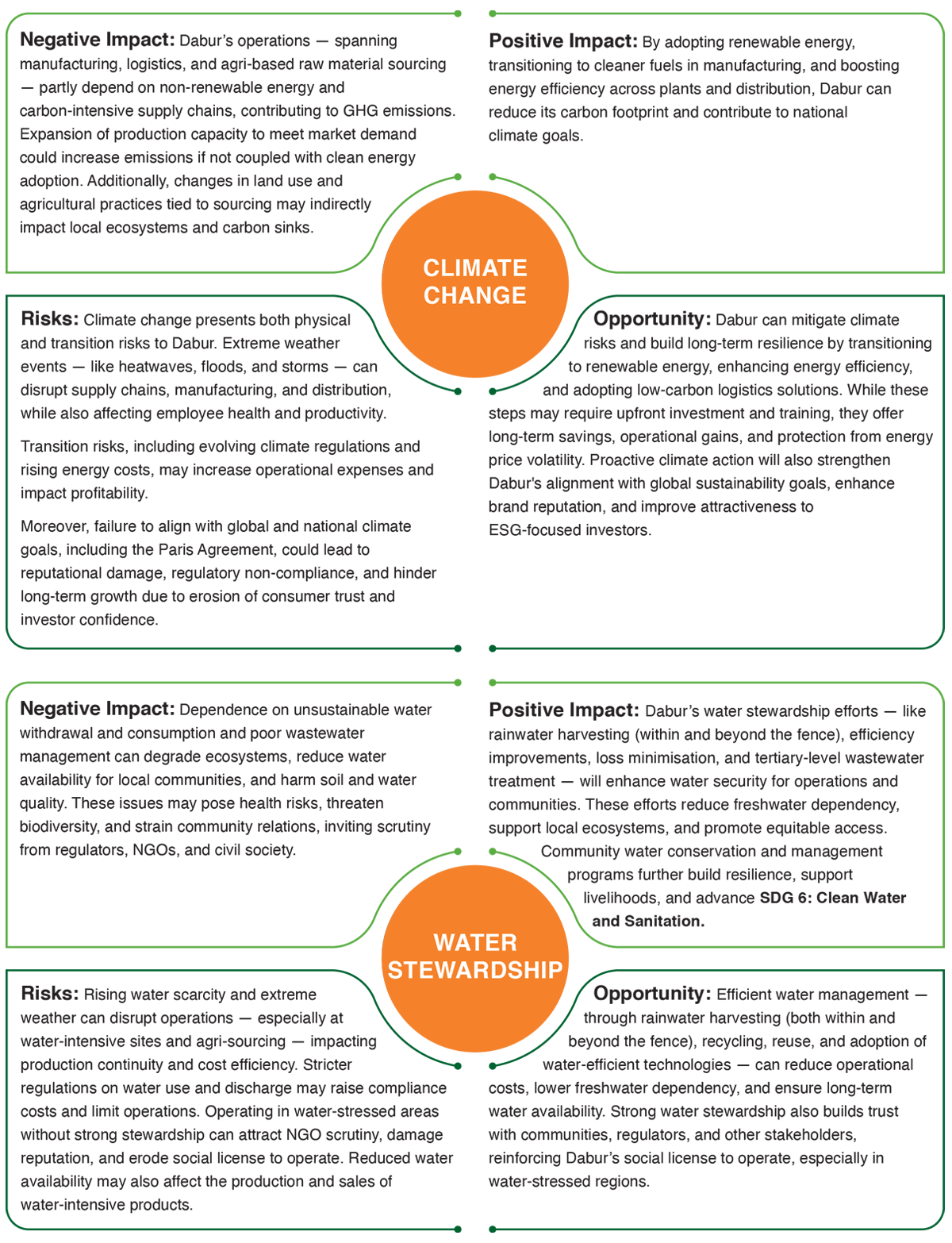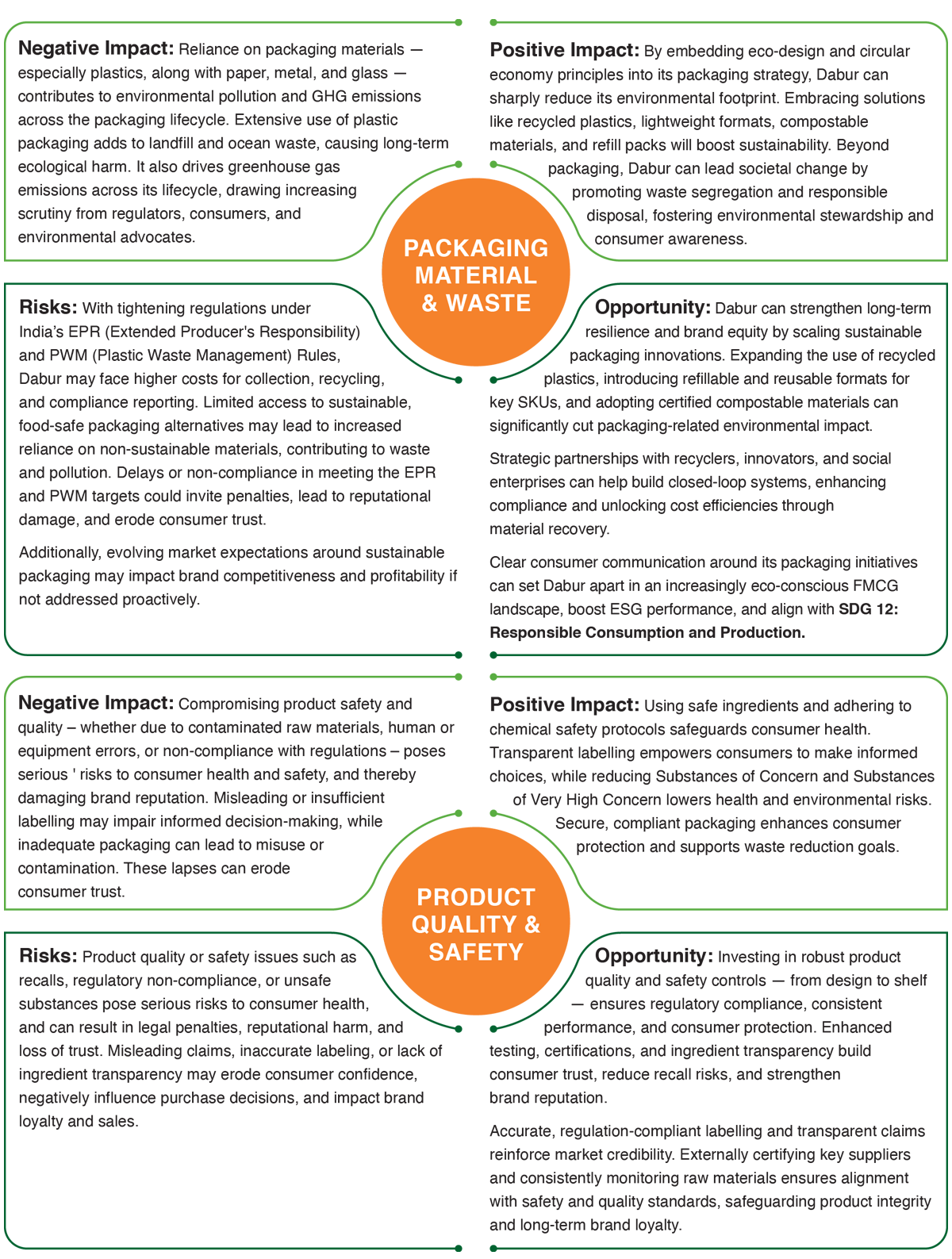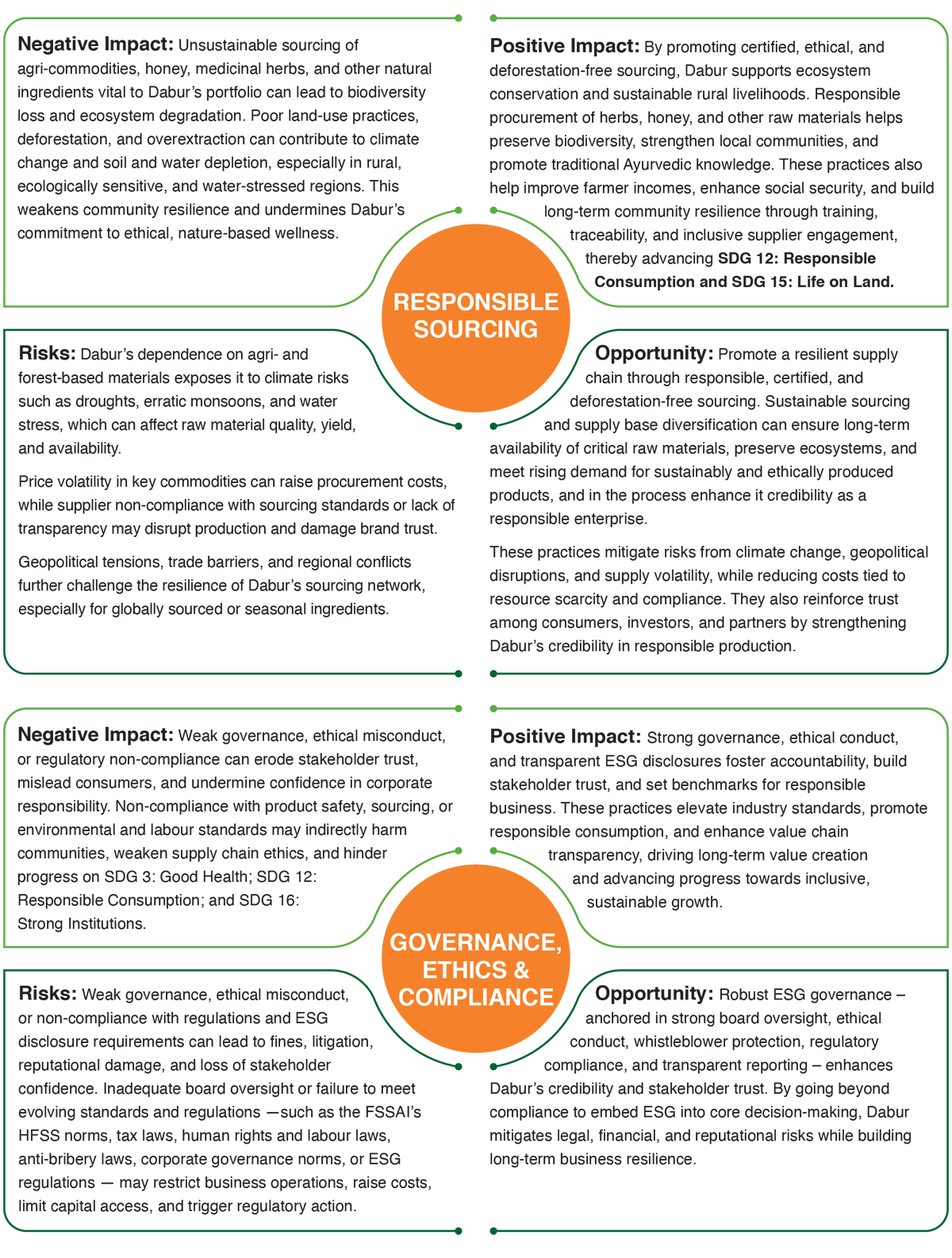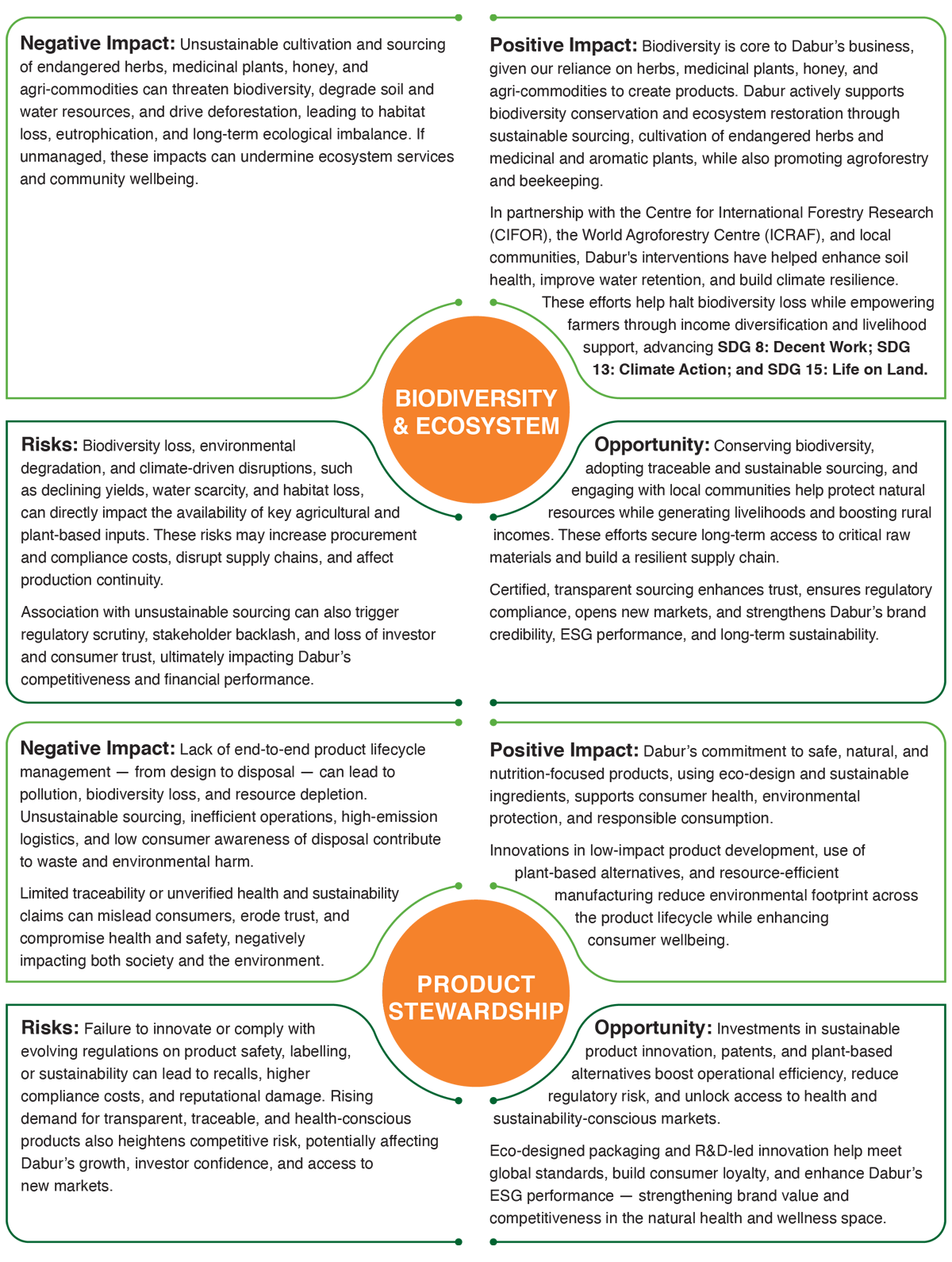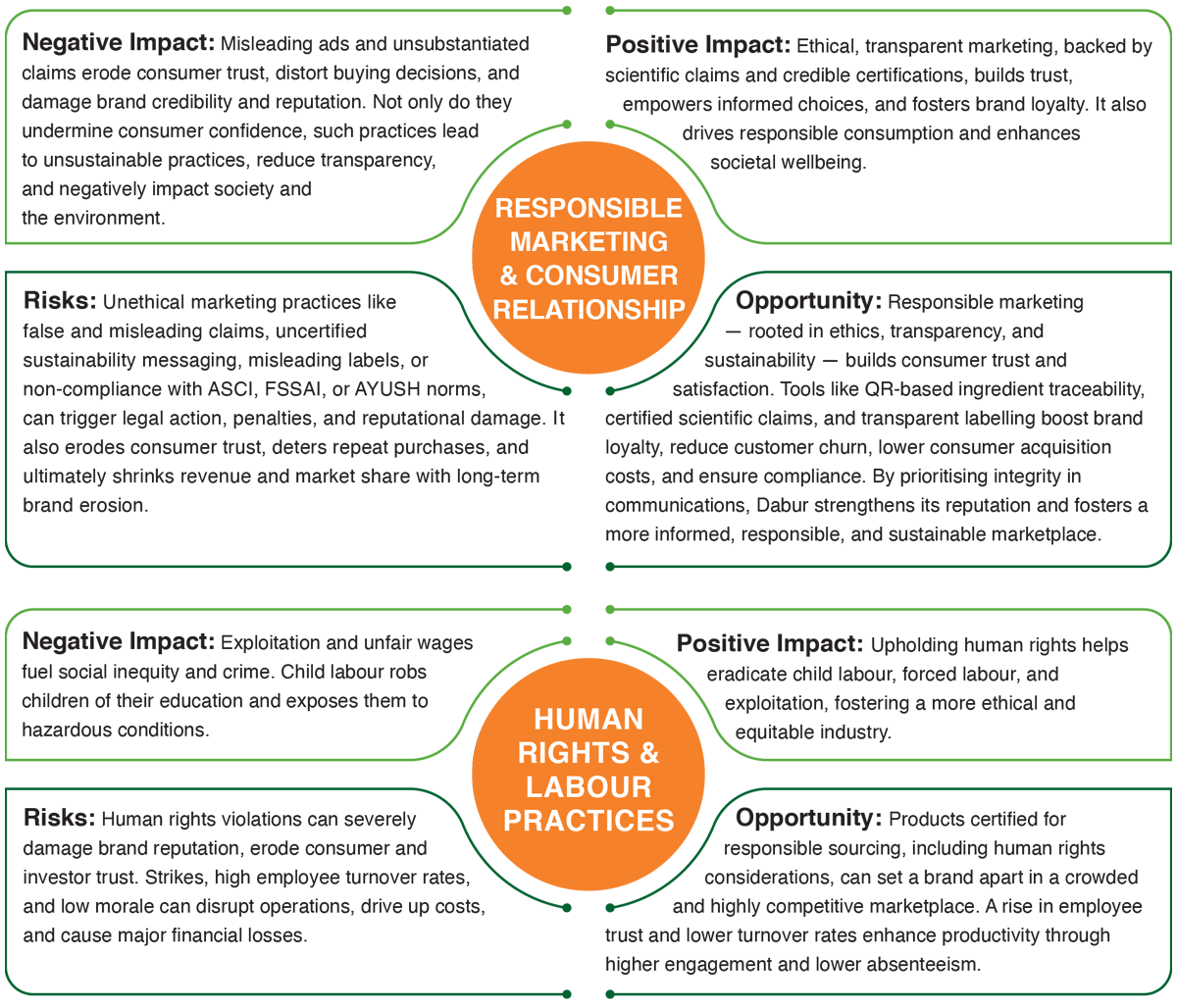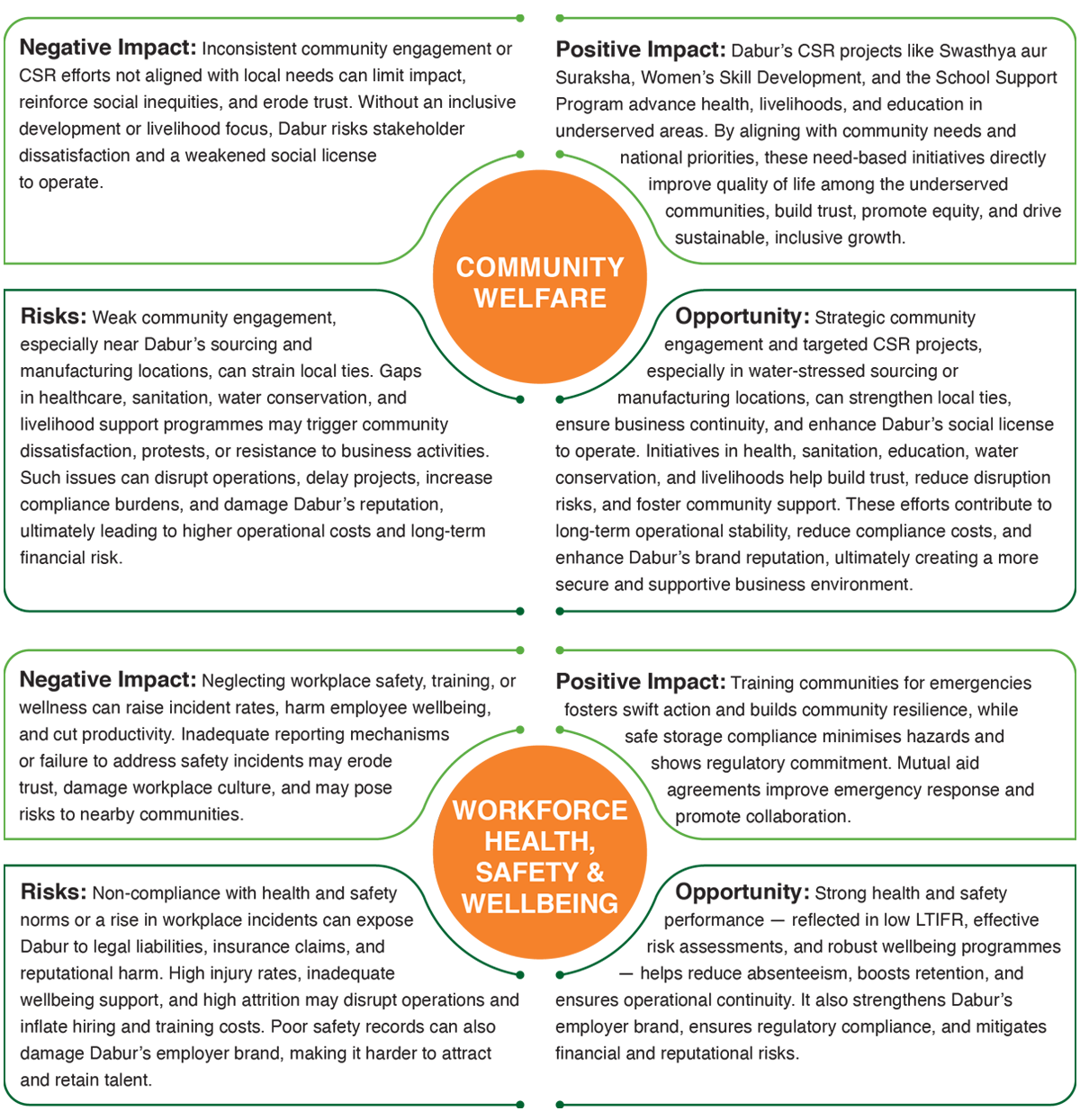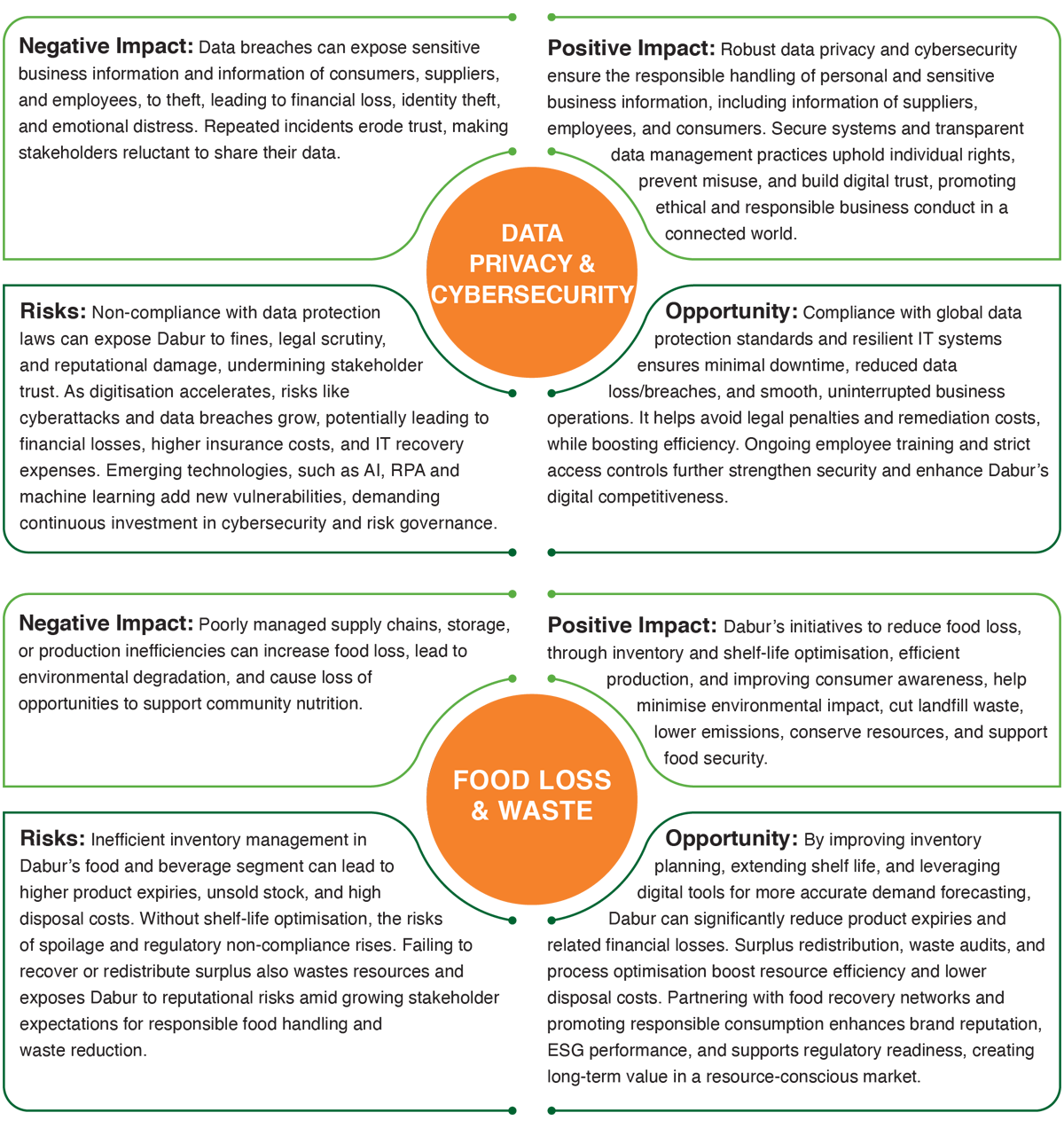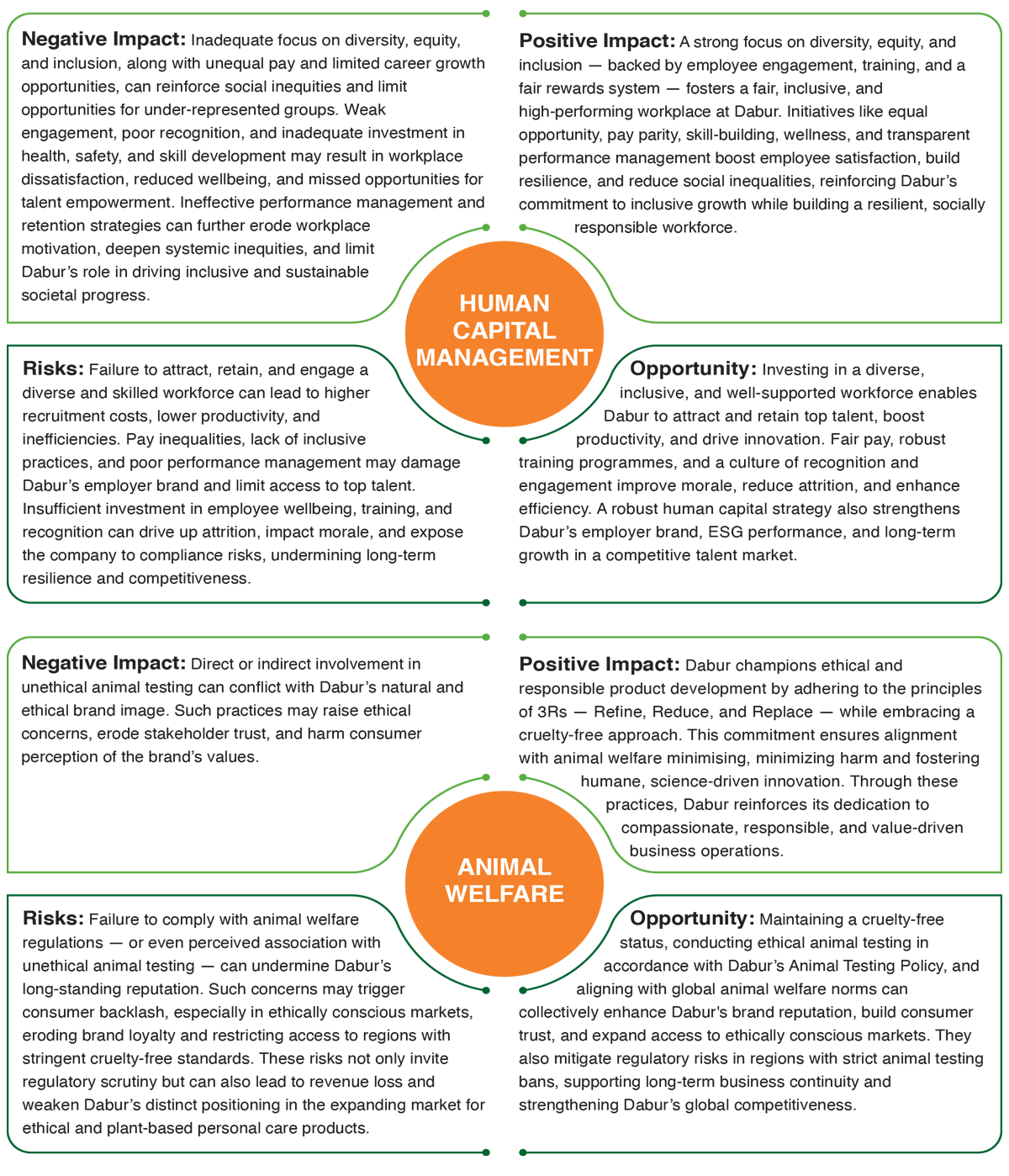Double Materiality Assessment
In FY 2024–25, Dabur transitioned to a Double Materiality approach, recognising that sustainability issues not only affect our business performance (financial materiality) but are also shaped by the impact our operations have on the environment and society (impact materiality). This shift enables us to better align with evolving global standards and stakeholder expectations, while ensuring that our strategies are resilient, responsible, and future-ready.
Our updated Materiality Assessment process involved a comprehensive evaluation of internal and external stakeholder inputs, industry trends, and emerging ESG risks and opportunities. By integrating both financial and impact perspectives, we prioritised issues that were critical to our long-term value creation and sustainability commitments. This enhanced understanding empowers Dabur to make more informed decisions, strengthen transparency in reporting, and drive shared value for all stakeholders.
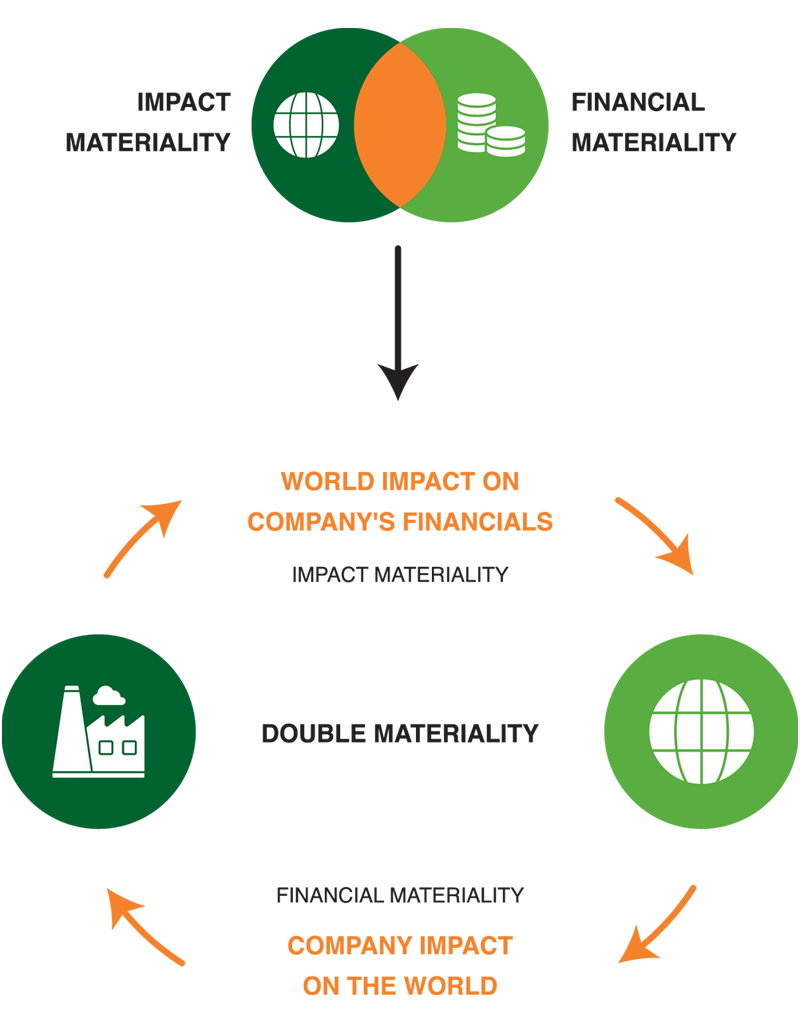
The exercise led to the identification of 16 material topics, which are as follows:
ENVIRONMENT
1. Climate Change
2. Packaging Material & Waste
3. Water Stewardship
4. Biodiversity & Ecosystem
5. Food Loss & Waste
SOCIAL
6. Responsible Marketing & Consumer Relationship
7. Human Rights & Labour Practices
8. Workforce Health, Safety & Wellbeing
9. Human Capital Management
10. Community Welfare
GOVERNANCE
11. Product Safety & Quality
12. Responsible Sourcing
13. Governance, Ethics & Compliance
14. Product Stewardship
15. Data Privacy & Security
16. Animal Welfare
The results of the Double Materiality Assessment have been instrumental in refining our ESG priorities and anchoring them within our broader business strategy. The matrix below presents the 16 material topics, mapped across the dimensions of financial and impact materiality to guide focused and accountable action.

